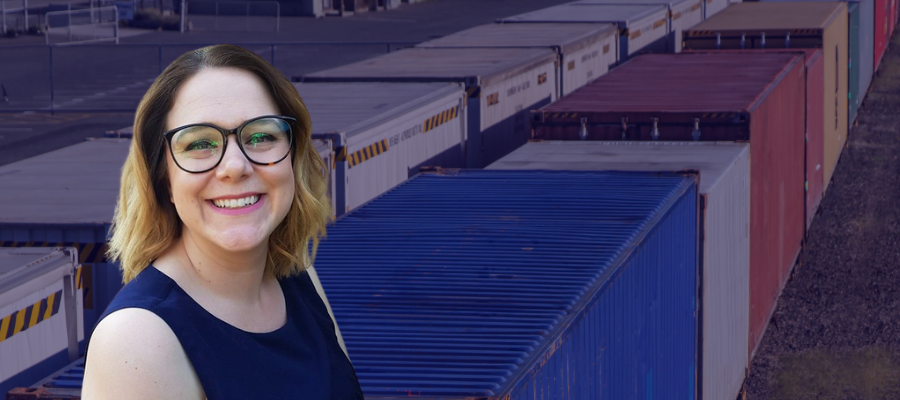🕒 Article read time: 2 minutes
Why rail freight deserves equal treatment

As we prepare to celebrate the first world freight day this week it is timely to share why, for Great British Railways (GBR) and rail reform, Logistics UK is calling for equal treatment for rail freight.
Rail freight does not currently have the same priority as passenger rail. This is evidenced by the initial draft proposals for GBR, which have a core duty for passengers but none for freight. As Britain’s railways are amongst the busiest in the world and all lines are mixed mode (they operate passenger and freight trains on a single network) pre-pandemic passenger growth had seen freight increasingly pushed into the margins of the timetable. Key freight links like the North London line are increasingly used for passengers. Significant new investments like Transpennine, HS2 and East West Rail consider rail freight as an afterthought. This was good for passenger revenues but post COVID-19, when passenger travelling patterns have changed, Logistics UK argues that now is the time to reset the relationship.
SLASHING EMISSIONS, IMPROVING AIR QUALITY, CUTTING CONGESTION
Rail freight offers a range of environmental benefits, reducing carbon emissions by up to 76% and improving air quality by as much as 16% when compared to road. It also reduces congestion by moving freight off the roads, with a freight train moving as much as 76 HGVs.
Alexandra Herdman, Public Policy Manager, Logistics UK, said: “Logistics UK welcomes GBR’s commitment to a rail freight growth target. With the decline of coal, which was the single biggest commodity moved on the railways until recent years, rail freight has recovered; however, recovery is not growth. While the rail freight sector has successfully diversified away from coal, current overall freight volumes are approximately the same as 2000.”
Logistics UK argues that commitment to growth will require a step change via what the business group calls the four Cs.
CLARITY ON PRIORITY ROUTES FOR RAIL FREIGHT
The HS2 business plan commits to release capacity for freight but it doesn't say where, when or how. A national network for rail freight is needed.
CLARITY ON PRICING
The National Infrastructure Commission is preparing the next five-year National Infrastructure Assessment. It has committed to look at road pricing but must commit to look at rail pricing as well, as fair pricing is the only way to fully incentivise rail freight and make best use of the transport network.
COMMITMENT NOW TO ELECTRIFICATION OF KEY FREIGHT PATHS
The mainlines must be optimised for freight success and electrification is the only power source with the capability to do this. Electrification also solves air quality concerns.
CLARITY ON HYDROGEN AND FUELS
Should global investors take UK hydrogen rail and biofuels seriously or are we prioritising hydrogen for heat and zero carbon fuels for aviation? Further clarity and certainty are needed for business confidence.
Herdman said: “In the last decade, private sector investment in the rail industry has totalled £8.2 billion. If GBR gets this right, there are clear opportunities to build on this public private partnership. As the world tips towards recession, neither taxpayers nor businesses can afford to take chances on investment.
“Equal treatment and a clear plan now will set the tone for future investment. A duty for passengers with none for freight would tell us all we need to know about whether GBR is serious about rail freight.”
*www.logistics.org.uk/rail
Published On: 29/09/2022 16:00:52

Comments Section
If you are a Logistics UK member login to add comments.